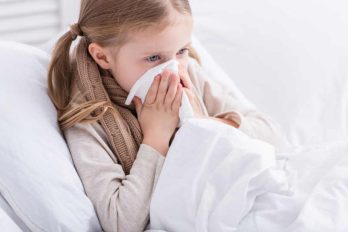It is normal to feel nervous about your baby’s first appointment with the pediatrician. You just want to ensure your baby is safe during the visit. Luckily, learning what to expect can help you get through the appointment without feeling too nervous. Here is an idea of what to expect from your baby’s first pediatrician visit.
Fill Out The Paperwork
Once you check-in for the appointment, you are given paperwork to fill out while you are in the waiting room. The paperwork includes information on your baby, your medical history, and your partner’s medical history. Luckily, there are some clinics that allow you to do a virtual check-in and paperwork before the appointment. Taking care of the check-in and paperwork online can cut down on your wait time.
Meeting Their Nurse
When it is your baby’s turn to see the pediatrician, a nurse comes out to greet you and escort you to the back. Your nurse records your baby’s height, width, weight, and head circumference. They also check your baby’s temperature and vital signs. Finally, your nurse may ask questions to ensure you are ready for the appointment. After this portion of the visit, you can wait in the exam room for your pediatrician.
Examination By The Pediatrician
Your pediatrician will knock and greet you as they walk into the exam room. The examination involves gently bending and prodding your baby to ensure there are not any developmental issues. They also check your baby from head to toe to ensure they are doing well. The examination also includes checking their pulse and reflexes.
Discussion About Your Baby
Your pediatrician asks questions and provides information about your baby’s health before, during, and after the examination. The questions may include their feeding pattern, digestive system, and sleep pattern. Your baby may receive a hepatitis B vaccine, but you do not have to worry about most vaccines until they are two months old. You also have the opportunity to address questions or concerns about your baby’s health.
Schedule The Next Appointment
Once the appointment is over, you can schedule the one-month appointment at the front desk. You have gotten through your baby’s first appointment, and now you have an idea of what to expect at their one-month appointment. Remember, the first few months of your baby’s life include several check-ups to ensure they are developing well.
When you need a patient, friendly pediatrician for your baby, consider Kids 1st Pediatrics. Learn more about this pediatric clinic by visiting kids1stpediatrics.net.




